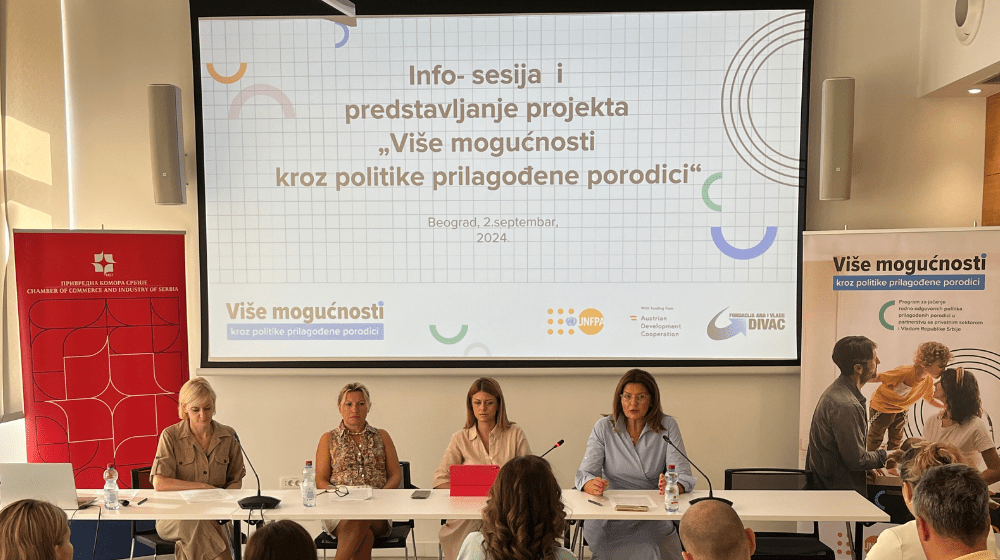Belgrade, September 2, 2024 – Investing in family-friendly initiatives helps companies strengthen their brand, attract and retain employees, and demonstrate corporate social responsibility. This was the key takeaway from today's third info-session in Belgrade, part of the regional project "Expanding Choices: Gender-Responsive Family Policies for the Private Sector in the Western Balkans - Phase 2." Similar sessions were held in Novi Sad and Niš earlier this year.
The session introduced the "Family-Friendly Workplace" model and provided employers with details on how to apply to participate in the project and enhance their employee policies.
“In today’s modern business environment, where work-life balance is increasingly important, investing in family-supportive policies represents a crucial strategy for success and growth. These policies/practices not only enhance employee satisfaction and productivity but also strengthen the company's brand and its social impact. Through collaboration with the Government of the Republic of Serbia and state authorities, the project will contribute to improving normative acts and implementing gender-responsive policies, thereby fostering the creation of an inclusive work environment for all employees,” said Borka Jeremić, Head of the UN Population Fund Office in Serbia.
Research shows that millennials and Generation Z prefer employers who value and support work-life balance, career advancement, and personal development. The “Family-Friendly Workplace” model aims to establish a balance between work and family life, contributing to better employee productivity and improved results for companies. This model supports all employees, regardless of parental status, in achieving a balance between work obligations and family responsibilities, creating an inclusive and supportive work environment.
“Companies that build a reputation on promoting work-life balance become highly attractive to workers and tend to enjoy higher employee retention rates, resulting in reduced long-term training needs, greater loyalty, and increased internal expertise, as well as profit. This is a goal that every company should aim for,” said Ana Koeshall, Director of the Ana and Vlade Divac Foundation.
The "Expanding Choices: Gender-Responsive Family Policies for the Private Sector in the Western Balkans - Phase 2" project, which will be implemented until 2026, also includes mentoring support for introducing this model into companies’ operations, either through existing activities or by developing new initiatives.
“The Chamber of Commerce and Industry of Serbia, as the home of all economic entities in our country, strives to promote socially responsible business practices in Serbia, which are becoming increasingly significant and prevalent in the domestic business environment. It is important for companies in Serbia to gradually become aware of the importance of participating in socially responsible activities and to undertake various initiatives in this sector,” said Marija Borota, Advisor to the President of the Chamber of Commerce and Industry of Serbia.
The “Family-Friendly Workplace” model, which will be introduced in selected companies during the project, aligns with the general business goals, needs, and ambitions of each company. Some measures within the model that can contribute to balancing work and family obligations include allowing remote work, scheduling meetings only during working hours, providing support for reintegration during and after parental leave, providing necessary technical equipment for remote work, paid parental leave, child care support, household support etc.
Today's event was organized with the support of the Chamber of Commerce and Industry of Serbia, featuring best practices in family-friendly workplace policies shared by Hemofarm and Bosch.
The activities are carried out by the UN Population Fund (UNFPA) in Serbia in collaboration with the Government of the Republic of Serbia and private sector, with active support from the Ana and Vlade Divac Foundation within the project "Expanding Choices: Gender-Responsive Family Policies for the Private Sector in the Western Balkans - Phase 2" with financial support from the Austrian Development Agency.


